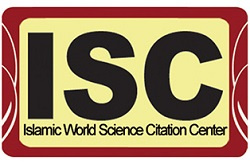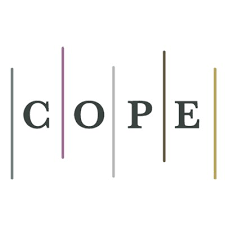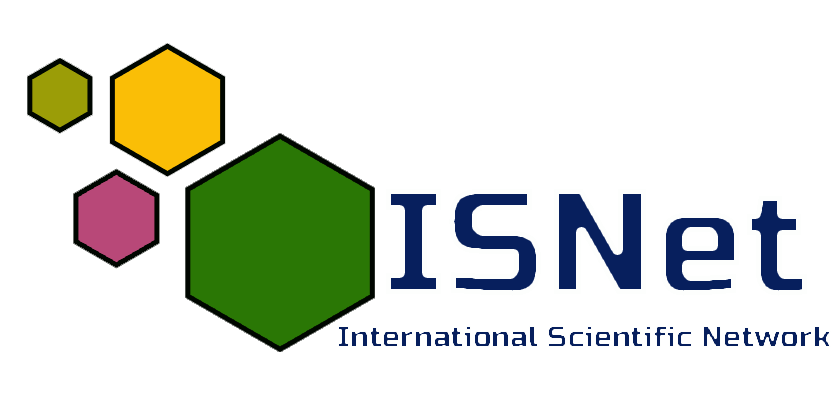Security and privacy analysis based on Internet of Things in the fourth industrial generation (Industry 4.0)
DOI:
https://doi.org/10.59615/ijimes.3.2.1DOR:
https://dorl.net/dor/20.1001.1.27832678.2023.3.2.1.7Keywords:
Internet of Things, Industry 4.0, privacy, security of Internet of Things, Industrial Internet of Things (IIoT)Abstract
The connection of smart devices using the Internet has dramatically changed the way people live, and this concept has also been extended to the industrial sector. This practice not only provides more stable, faster, and safer communications but also makes it possible to realize the concept of the smart factory in the fourth industrial revolution. The Internet of Things uses a unique Internet Protocol to identify, control, and transmit data to individuals as well as databases. Data is collected through the Internet of Things, stored in cloud storage, and managed and calculated through analytical tools. Internet of Things security is a field of technology that focuses on protecting connected devices and networks in the Internet of Things (IoT). Ensuring the safety of networks with connected IoT devices is critical. Security in the Internet of Things includes a wide range of techniques, strategies, protocols, and measures aimed at mitigating the ever-increasing vulnerabilities of the Internet of Things in modern businesses. The simultaneous connection of objects also brings privacy concerns. For this reason, in this research, an effort has been made to examine and analyze the most important privacy requirements in the Internet of Things in digital businesses in Industry 4.0. In this regard, by using experts' opinions and literature review, privacy requirements were extracted and evaluated using fuzzy non-linear decision-making methodology. The results showed that acquired and intrinsic information has the highest importance.
Downloads
References
Nozari, H., & Sadeghi, M. E. (2021). Artificial intelligence and Machine Learning for Real-world problems (A survey). International Journal of Innovation in Engineering, 1(3), 38-47.
Douiba, M., Benkirane, S., Guezzaz, A., & Azrour, M. (2023). An improved anomaly detection model for IoT security using decision tree and gradient boosting. The Journal of Supercomputing, 79(3), 3392-3411.
Obaid, H. S., & Nozari, H. (2022). Examining Dimensions and Components and Application of Supply Chain Financing (In Chain Stores). International Journal of Innovation in Management, Economics and Social Sciences, 2(4), 81-88.
Nozari, H., Najafi, E., Fallah, M., & Hosseinzadeh Lotfi, F. (2019). Quantitative analysis of key performance indicators of green supply chain in FMCG industries using non-linear fuzzy method. Mathematics, 7(11), 1020.
Abdulsamad, A. A., & Salih, T. A. (2023). IoT security improvement based on SDN Controller. Eurasian Journal of Engineering and Technology, 14, 49-56.
Shayannia, S. A. (2022). Designing a Multiobjective Human Resource Scheduling Model Using the Tabu Search Algorithm. Discrete Dynamics in Nature and Society, 2022.
Fallah, M., Sadeghi, M. E., & Nozari, H. (2021). Quantitative analysis of the applied parts of Internet of Things technology in Iran: an opportunity for economic leapfrogging through technological development. Science and technology policy Letters, 11(4), 45-61.
Aliahmadi, A., Nozari, H., & Ghahremani-Nahr, J. (2022). AIoT-based sustainable smart supply chain framework. International journal of innovation in management, economics and social sciences, 2(2), 28-38.
Toloie-Eshlaghy, A., & Bayanati, M. (2013). Ranking information system success factors in mobile banking systems with VIKOR. Middle-East Journal of Scientific Research, 13(11), 1515-25.
Nozari, H., & Szmelter-Jarosz, A. (2022). IoT-based Supply Chain For Smart Business (Vol. 1). ISNET.
Eisapour, K., Bayanati, M., & Yousefpour, J. (2013). A mathematical model for ranking R&D organizationsas a technology development factor. Advances in Environmental Biology, 717-721.
Bayanati, M., Toloie-Eshlaghy, A., & Bayanati, M. IS Success in M-Banking Systems: A Dynamic Approach.
Nozari, H., Fallah, M., Szmelter-Jarosz, A., & Krzemiński, M. (2021). Analysis of security criteria for IoT-based supply chain: a case study of FMCG industries. Central European Management Journal, 29(4).
Bayanati, M., Peivandizadeh, A., Heidari, M. R., Foroutan Mofrad, S., Sasouli, M. R., & Pourghader Chobar, A. (2022). Prioritize Strategies to Address the Sustainable Supply Chain Innovation Using Multicriteria Decision-Making Methods. Complexity, 2022.
Pishkar, N., Nasimi, M. A., & RAHMATI, M. (2021). Developing a Conceptual Model of Green Supply Chain Antecedents and Consequences in the Qualification Approach.
Nozari, H., Szmelter-Jarosz, A., & Ghahremani-Nahr, J. (2022). Analysis of the Challenges of Artificial Intelligence of Things (AIoT) for the Smart Supply Chain (Case Study: FMCG Industries). Sensors, 22(8), 2931.
Rafierad, S., Aghajani, H. A., Agha Ahmadi, G., & Rahmaty, M. (2022). Construction and Validation of Dimensions and Components of the Organizational Anomie Scale in order to provide a Native Model in Government Hospitals. Journal of System Management, 8(2), 57-73.
Salehi Koocheh Baghi, S. A., Rahmaty, M., & Kia Kojouri, D. (2021). Presenting a Model of Organizational Insentience in the Red Crescent Society. Quarterly Scientific Journal of Rescue and Relief, 13(3), 228-236.
Aliahmadi, A., Nozari, H., & Ghahremani-Nahr, J. (2022). Big Data IoT-based agile-lean logistic in pharmaceutical industries. International Journal of Innovation in Management, Economics and Social Sciences, 2(3), 70-81.
Daneshvar, A., Ebrahimi, M., Salahi, F., Rahmaty, M., & Homayounfar, M. (2022). Brent Crude Oil Price Forecast Utilizing Deep Neural Network Architectures. Computational Intelligence and Neuroscience, 2022.
Vakilian Sayyah, M., Aghajani, H. A., Agha Ahmadi, G. A., & Rahmaty, M. (2022). Analyzing dimensions, consequences, and inequalities of organizational citizenship behaviour in non-governmental organizations of crisis management (experimental evidence: Red Crescent Society of the Islamic Republic of Iran). Journal of rescue and relief, 14(3), 163-175.
Nozari, H., Fallah, M., & Szmelter-Jarosz, A. (2021). A conceptual framework of green smart IoT-based supply chain management. International journal of research in industrial engineering, 10(1), 22-34.
Shayan Nia, S. A., Mohammadi, M., Lotfi, M. R., & Rezaeian, J. (2022). Determining the Sequence and Schedule of Job-shop Production Systems using Genetic Algorithm by considering Possible Values. Journal of Industrial Strategic Management, 7(1), 42-51.
Ashok, K., & Gopikrishnan, S. (2023). Statistical Analysis of Remote Health Monitoring Based IoT Security Models & Deployments From a Pragmatic Perspective. IEEE Access, 11, 2621-2651.
Nozari, H., Szmelter-Jarosz, A., & Ghahremani-Nahr, J. (2021). The Ideas of Sustainable and Green Marketing Based on the Internet of Everything—The Case of the Dairy Industry. Future Internet, 13(10), 266.
Alijanzadeh, M. R., Shayannia, S. A., & Movahedi, M. M. (2022). Optimization Of Maintenance In Supply Chain Process And Risk-Based Critical Failure Situations (Case study: Iranian Oil Pipeline And Telecommunication Company, North District). Journal of Applied Research on Industrial Engineering.
Shayannia, S. A. (2023). Presenting an agile supply chain mathematical model for COVID-19 (Corona) drugs using metaheuristic algorithms (case study: pharmaceutical industry). Environmental Science and Pollution Research, 30(3), 6559-6572.
Nahr, J. G., Nozari, H., & Sadeghi, M. E. (2021). Green supply chain based on artificial intelligence of things (AIoT). International Journal of Innovation in Management, Economics and Social Sciences, 1(2), 56-63.
Keliji, P. B., Aghajani, H. A., Movahedi, M. M., & Shayannia, S. A. (2022). The Analysis of the Role of Bullwhip Effects on the Four-Level Supply Chain in Industry Using Statistical Methods. Discrete Dynamics in Nature and Society, 2022.
Nozari, H., Sadeghi, M. E., & Najafi, S. E. (2022). Quantitative Analysis of Implementation Challenges of IoT-Based Digital Supply Chain (Supply Chain 0/4). arXiv preprint arXiv:2206.12277.
Published
How to Cite
Issue
Section
License
Copyright (c) 2023 Mahmonir bayanati

This work is licensed under a Creative Commons Attribution 4.0 International License.












